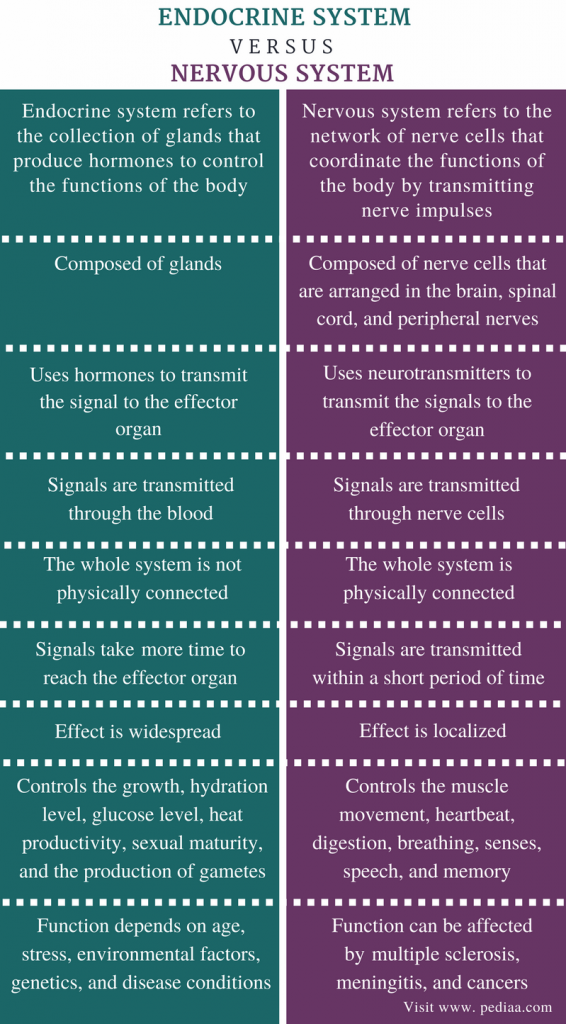
Difference Between Endocrine and Nervous System Definition, Characteristics, Function
The nervous system employs electrical impulses to transmit information swiftly. In times of danger, the nervous system triggers a rapid fight-or-flight response. The endocrine system comprises glands that regulate various physiological processes. The endocrine system maintains metabolic rates via the thyroid gland.

Similarities Between Endocrine and Nervous System
The main difference between endocrine and neuroendocrine system is that the endocrine system regulates long-term processes, while the neuroendocrine system plays a crucial role in the body's response to stress, reproduction, and maintaining homeostasis.
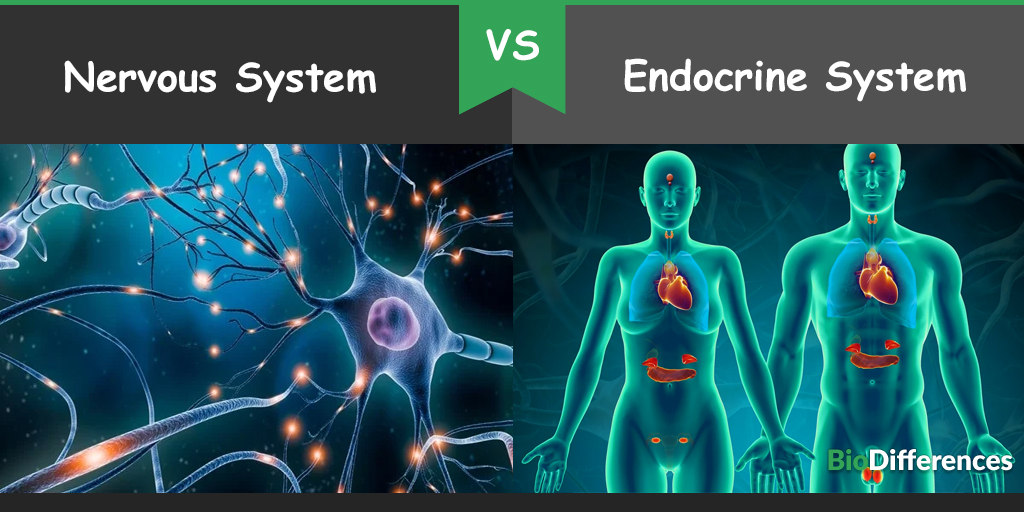
Difference Between Nervous System and Endocrine System Bio Differences
The nervous system and the endocrine system use chemical messengers to signal cells, but the speed at which these messages are transmitted and the length of their effects differs. Nervous System. The nervous system responds rapidly to stimuli by sending electrical action potentials along neurons, which in turn transmit these action potentials.
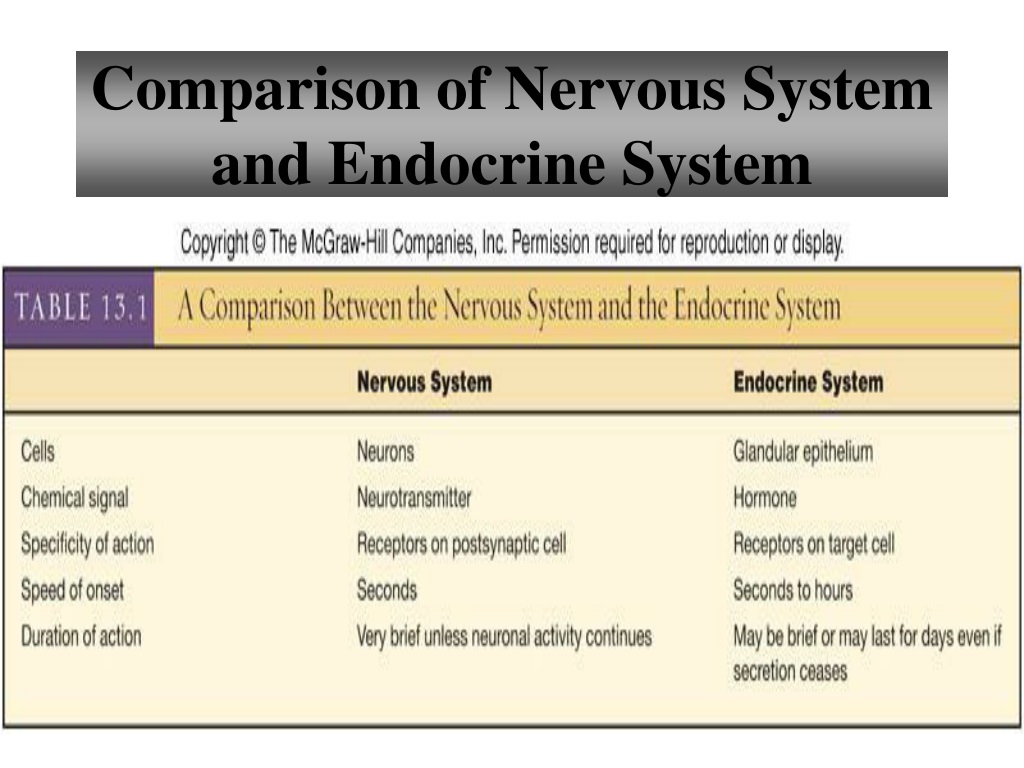
PPT Chapter 13 Endocrine System PowerPoint Presentation, free download ID9686084
The endocrine system works together with the nervous system to influence many aspects of human behavior, including growth, reproduction, and metabolism. And the endocrine system plays a vital role in emotions. Because the glands in men and women differ, hormones also help explain some of the observed behavioral differences between men and women.
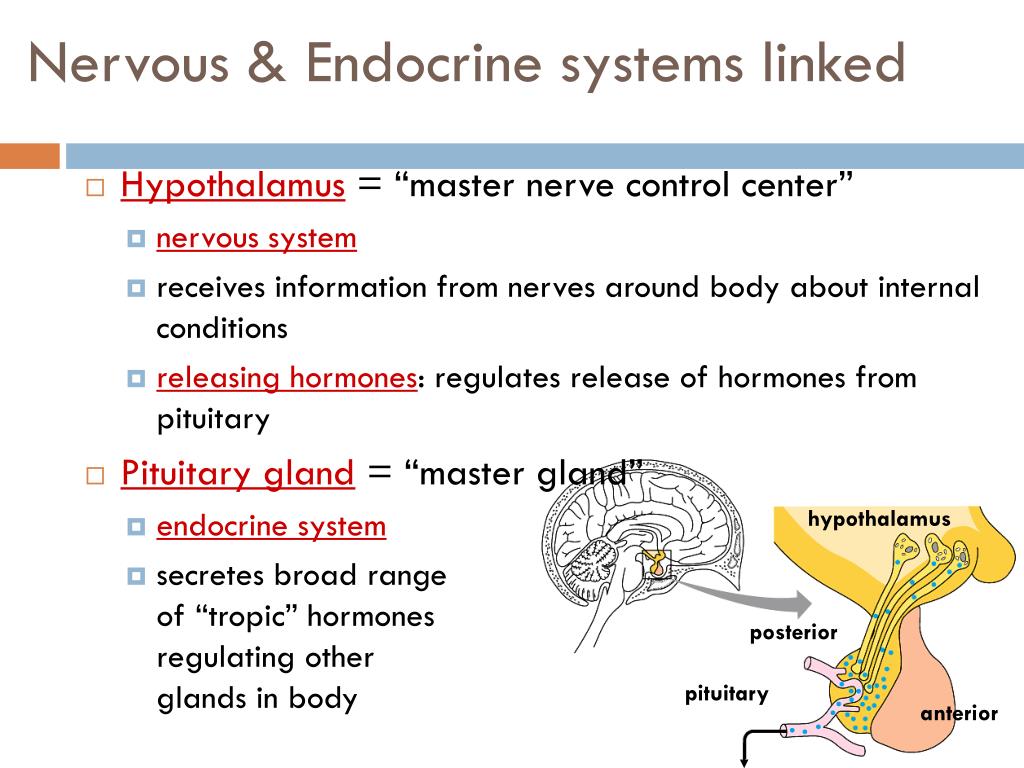
PPT Endocrine vs. Nervous System PowerPoint Presentation, free download ID6108865
One of the most significant differences between the nervous system and endocrine system is that the nervous system uses electrical impulses to send messages through neurons while endocrine glands use hormones to send messages to the target cells through the bloodstream.

What is the Difference between Nervous System and Endocrine System YouTube
The nervous system and the endocrine system use chemical messengers to signal cells, but the speed at which these messages are transmitted and the length of their effects differs. Nervous System. The nervous system responds rapidly to stimuli by sending electrical action potentials along neurons, which in turn transmit these action potentials.
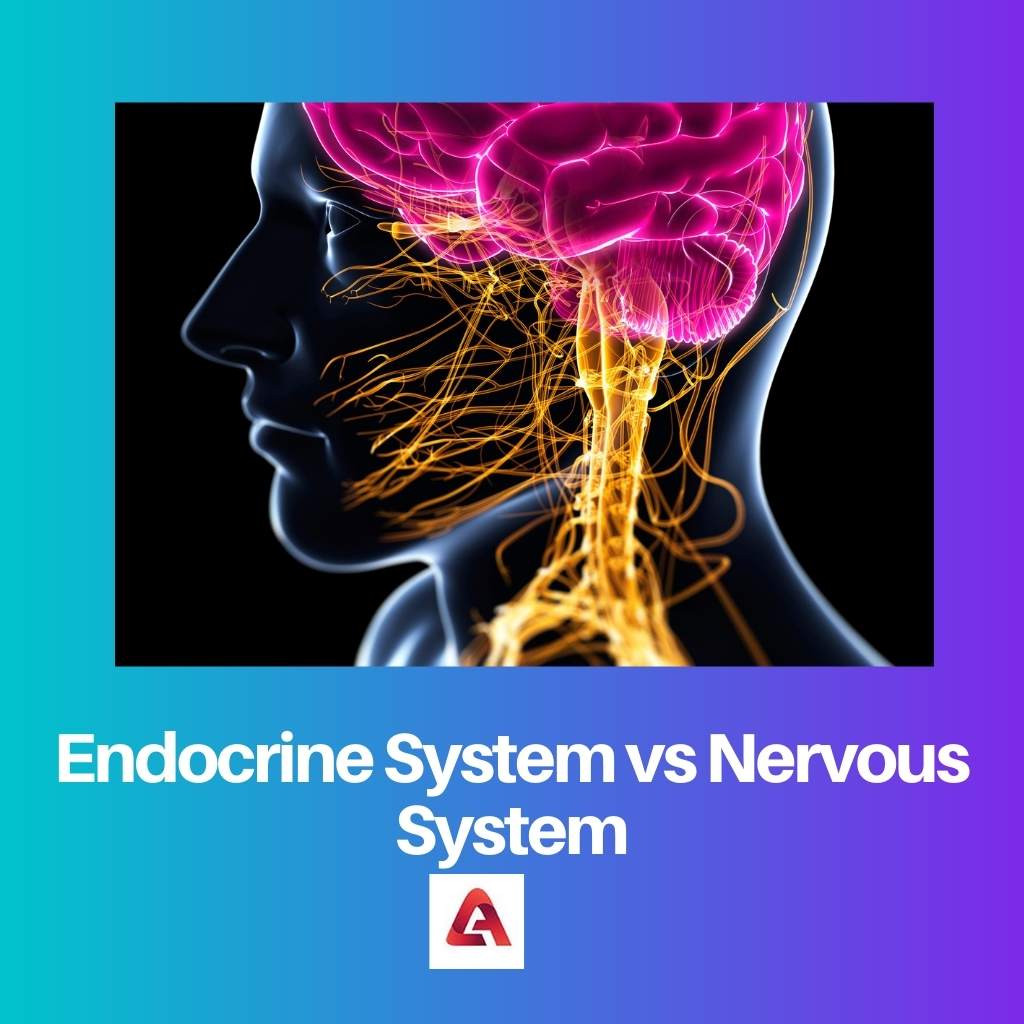
Endocrine System vs Nervous System Difference and Comparison
The basic difference between the nervous system and the endocrine system is that the nervous system uses electrical signals or impulses to send messages through neurons. In contrast, the endocrine system uses hormones as a chemical messenger to send signals to the target cell through the bloodstream in the body.
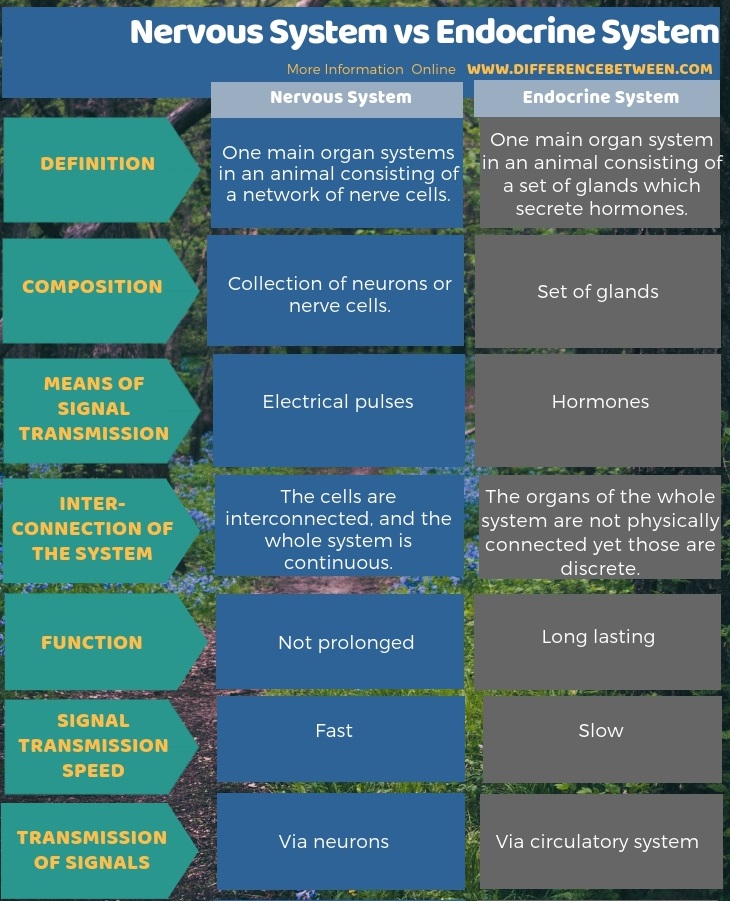
Difference Between Nervous System and Endocrine System Compare the Difference Between Similar
1. Brief explanation of the Endocrine System and Nervous System 2. Importance of both systems in the body 3. Endocrine System 4. Nervous System 5. Differences between Endocrine System and Nervous System 5.1. Interaction between Endocrine System and Nervous System 5.2. Reference Website Brief explanation of the Endocrine System and Nervous System

Difference Between Endocrine System and Nervous System Difference Between
The endocrine system consists of cells, tissues, and organs that secrete hormones critical to homeostasis. The body coordinates its functions through two major types of communication: neural and endocrine. Neural communication includes both electrical and chemical signaling between neurons and target cells.
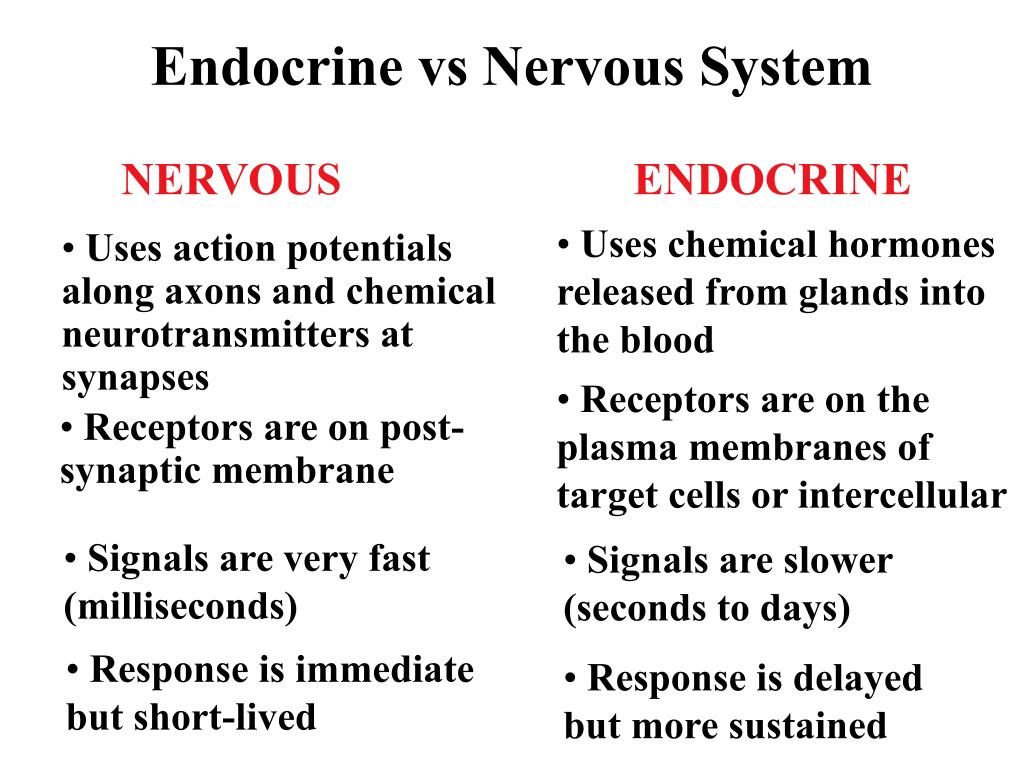
PPT ENDOCRINE SYSTEM PowerPoint Presentation, free download ID6386688
Difference Between Endocrine and Nervous Systems by Jeannie Storlie Science Animals are highly organized organisms with complicated anatomy and physiology. They possess particular organ systems for different functions. The circulatory system pumps blood, the reproductive system helps reproduce, and the skeletal system facilitates movement.
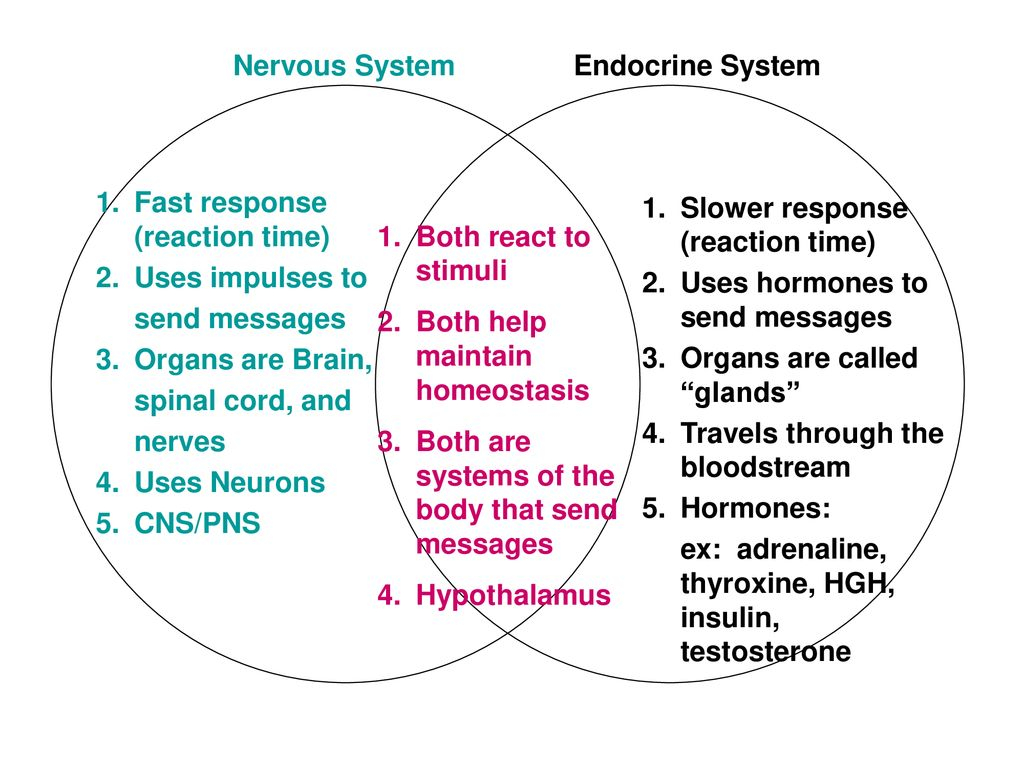
Nervous And Endocrine System Venn Diagram My XXX Hot Girl
What is Endocrine System? Definition of Endocrine System: The endocrine system is a system of glands that produce chemical messages called hormones which have an effect on various target cells throughout the human body. Organs involved in Endocrine System: The organs of the endocrine system are all glands that are found throughout the human body.
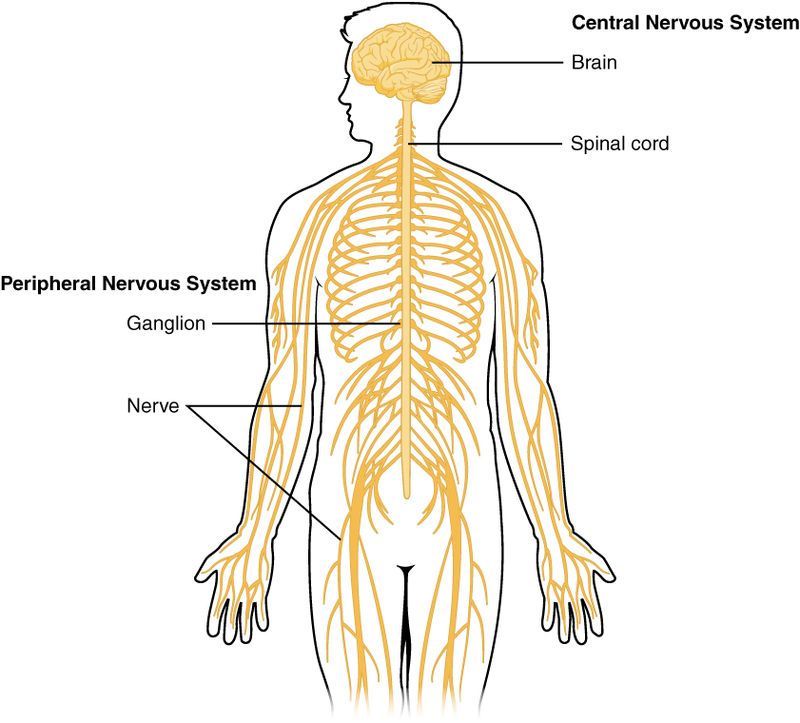
Difference Between Endocrine and Nervous System Definition, Characteristics, Function
Key terms The nervous system The nervous system uses electrical impulses to collect, process and respond to information about the environment. Nervous system cells The unique structure of neurons makes them specialized for receiving and transmitting electrical impulses throughout the body.

PPT Chapter 13 Endocrine System PowerPoint Presentation, free download ID6852342
The difference between the endocrine system and the nervous system is that the signal is sent to the neurons of the brain through electrical impulses or signals of the body in a nervous system, and on the other hand, the signal is sent to the targeted cell of the body through blood streaming in the body by acting like a chemicals messenger by th.
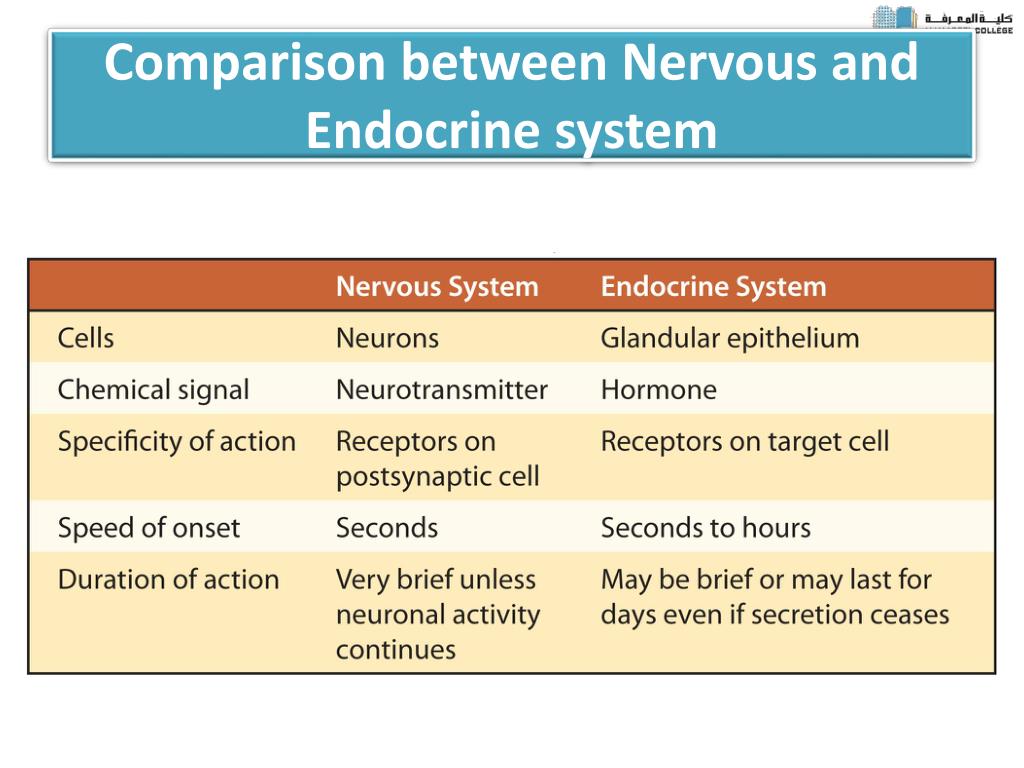
PPT OVERVIEW ENDOCRINE SYSTEM PowerPoint Presentation, free download ID6031722
In general, the nervous system involves quick responses to rapid changes in the external environment, and the endocrine system is usually slower acting—taking care of the internal environment of the body, maintaining homeostasis, and controlling reproduction.
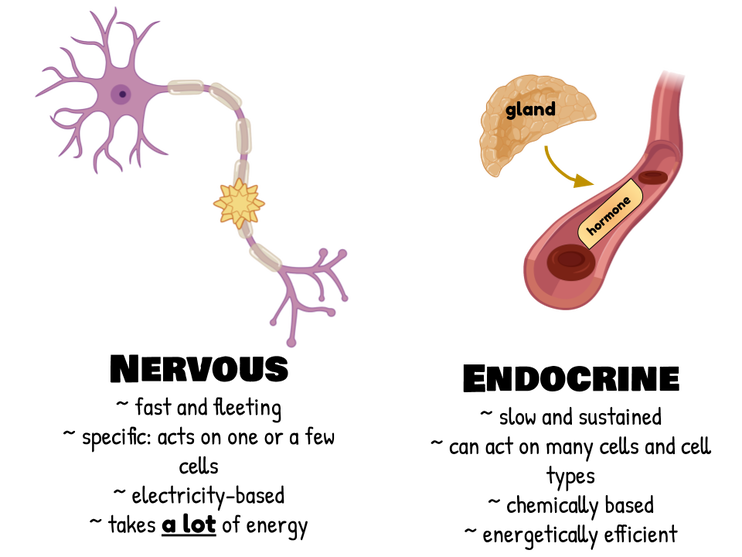
The Endocrine System EONS LEARNING
Responds rapidly to stimuli. Nervous. Sending electrical action potentials along neurons. Endocrine. Hormones elicit responses from target cells. Nervous. Send action potentials using neortransmitters.

Compare the nervous & endocrine systems YouTube
The nervous system works with the endocrine system to detect and transmit signals from internal and external stimuli to maintain homeostasis in the body. These two systems help regulate the electrical and chemical processes that relay information throughout and between the brain and body.